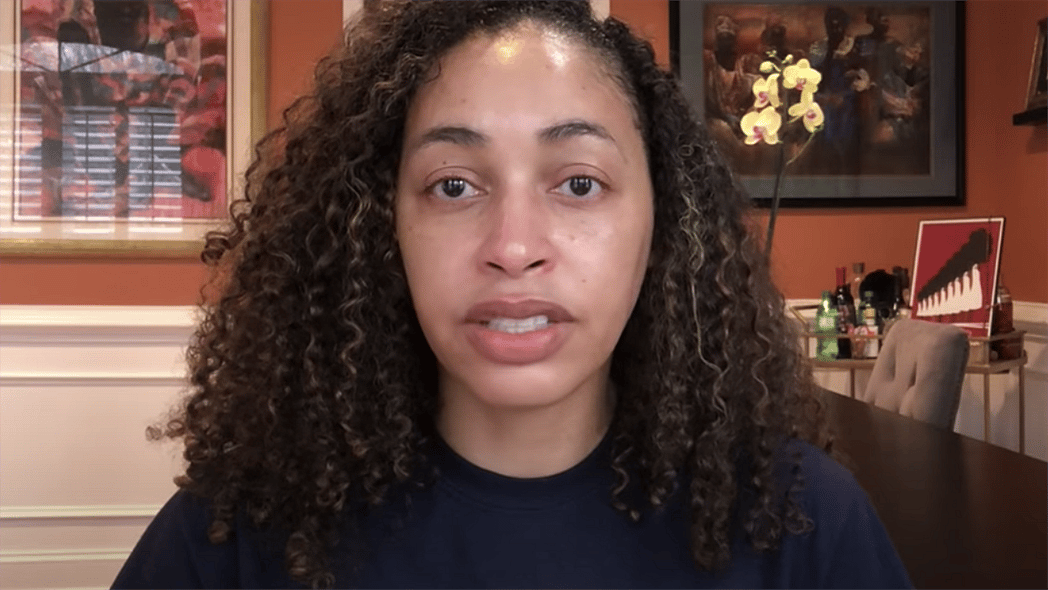The novel coronavirus, known more specifically as COVID-19, has brought the United States of America to its knees. And during one sleepless night in mid-March, it brought Dr. Khadeja Johnson to tears.
Dr. Johnson couldn’t stop thinking of a mom and nurse she had read about on Facebook who had passed away from the disease. She also couldn’t shake the idea of how many more people were unknowingly at risk.
READ MORE: Black doctors concerned about patient trust among African Americans amid coronavirus
So after writing out her thoughts on a sheet of paper, she sat in her living room, turned on her camera and asked us — pleaded with us through tear-filled eyes — to heed the warnings, take the virus seriously, stay at home and practice social distancing.
That simple-yet-powerful video has since been shared among thousands of women, from private group chats to Facebook groups, and has been viewed nearly 60,000 times.
“I didn’t expect to get that emotional,” Dr. Johnson tells theGrio via video chat as she is seated, again, in her living room. “I am a very stoic person. I like to state the facts, and I like to leave some of the emotion out of it. So it was very difficult for me to actually post something where I got so emotional.”
In fact, Dr. Johnson — who is board-certified in internal medicine and has over 14 years of service at the Morehouse School of Medicine and Grady Memorial Hospital in Atlanta — said she wasn’t going to post the video at all.
“I actually was like, ‘I can’t post this,’” she says. [I thought], ‘this is not good enough. I’m crying. This is too much.’”
READ MORE: Doctors threatened to be fired for exposing lack of hospital gear
But wise words from her mother encouraged her to share it anyway.
“I sent it to my mom and she was like, ‘you need to post this. Please, please post this.’ She said, ‘you use your voice the way you know how and this is your voice. Post it.’”
Dr. Johnson is glad to hear her video resonated with so many, and she believes mixed messaging is part of the reason that people were still going on with their lives at that time, and not taking heed to the warnings.
“We were hearing a lot of politicians saying, ‘keep going with life as usual’” she says, “but when you looked at other countries it was like: ‘Let’s stop, let’s not do anything, let’s isolate and lock this down so we can prevent the spread.’ I decided to post the video when I realized that people weren’t socially distancing.”
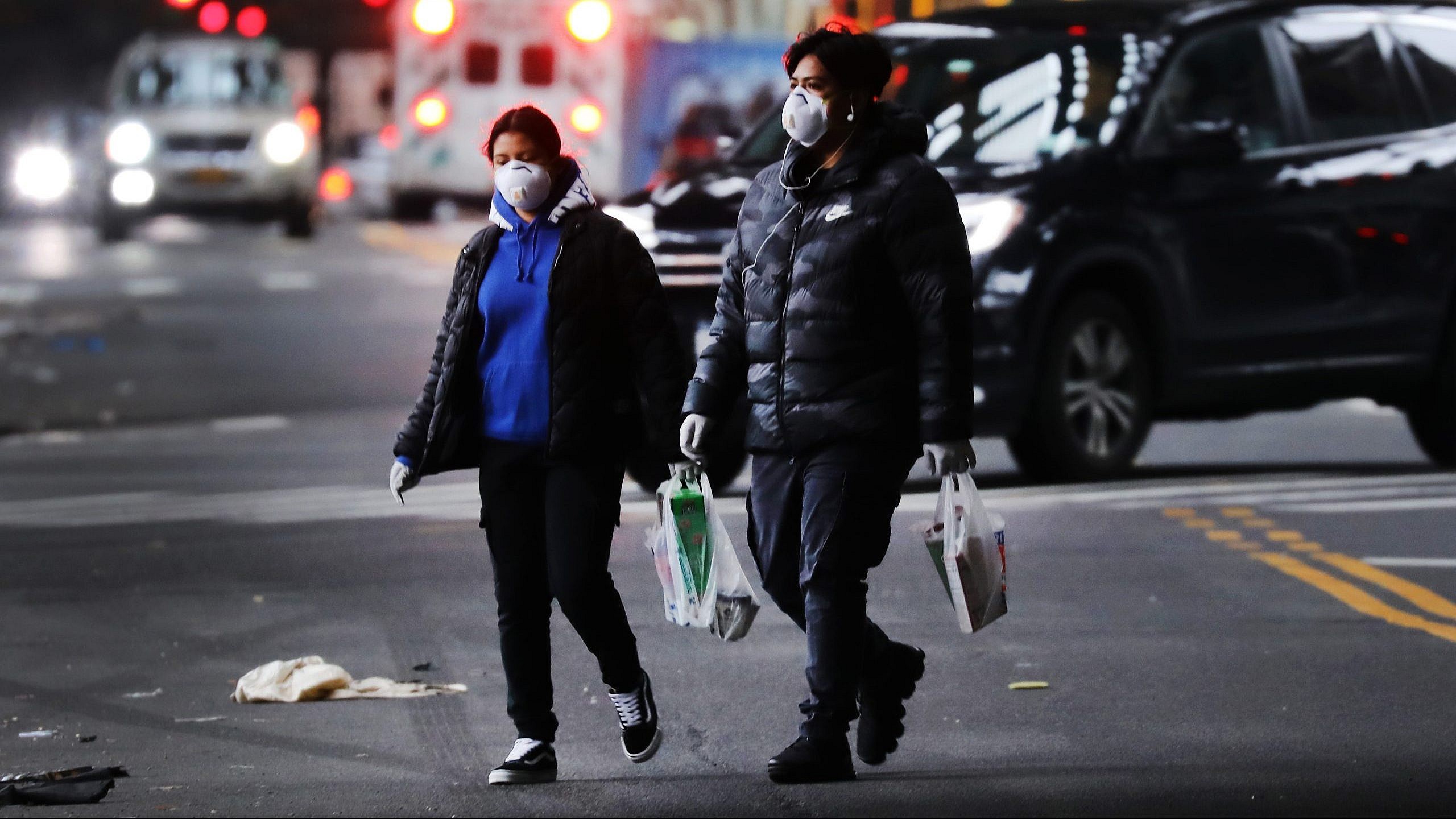
READ MORE: Coronavirus tests are not being prioritized in Black communities, doctors fear
Most states now have stay-at-home mandates in place to push social distancing (although, as of this date, there are still nine states holding out for some peculiar reason), and the numbers of positive cases and unfortunate deaths from the disease are staggering and undeniable.
Still there are dangerous myths that continue to spread about the coronavirus, also known as COVID-19, especially in the Black community. We asked Dr. Johnson to address some of those myths here.
MYTH #1 – Black people are immune to the Coronavirus
Though it’s not clear where this myth originated, you need to know this is not true. In fact, recent reports show that Black Americans “are overwhelmingly dying of coronavirus at much higher rates compared to other Americans in some major cities, but most federal officials and states are not keeping track or releasing racial data on coronavirus victims, raising concerns about care for the nation’s most vulnerable populations,” as reported by USA Today.
In Chicago alone, African-Americans account for more than half of those who have tested positive and 72 percent of virus-related fatalities in the city, even though they make up a little less than a third of the population.
“Those numbers take your breath away, they really do,” Chicago mayor Lori Lightfoot told the New York Times. The Los Angeles Times reported that “in Michigan, black people have died at more than eight times the rate of white people. In Illinois, they have died at nearly six times the rate. [And] in Louisiana, the difference is fivefold.”

No matter your race or background or location or even your age, if you are a human being, you are at risk of contracting the coronavirus and you should take heed of the guidelines and precautions outlined by the CDC — such as physical distancing, washing your hands frequently and wearing a mask in public.
MYTH #2 – You don’t need to wear a mask when you go outside
After weeks of debate and public discourse about whether you should or shouldn’t wear a mask in public, the CDC has finally recommended that you “wear cloth face coverings in public settings where other social distancing measures are difficult to maintain (e.g., grocery stores and pharmacies), especially in areas of significant community-based transmission” to help slow the spread of the disease.
“I no longer go in public without a mask on,” says Dr. Johnson, who, of course, wears her N95 mask when at work at the hospital to protect herself. But she also wears a mask when doing things like running her errands.
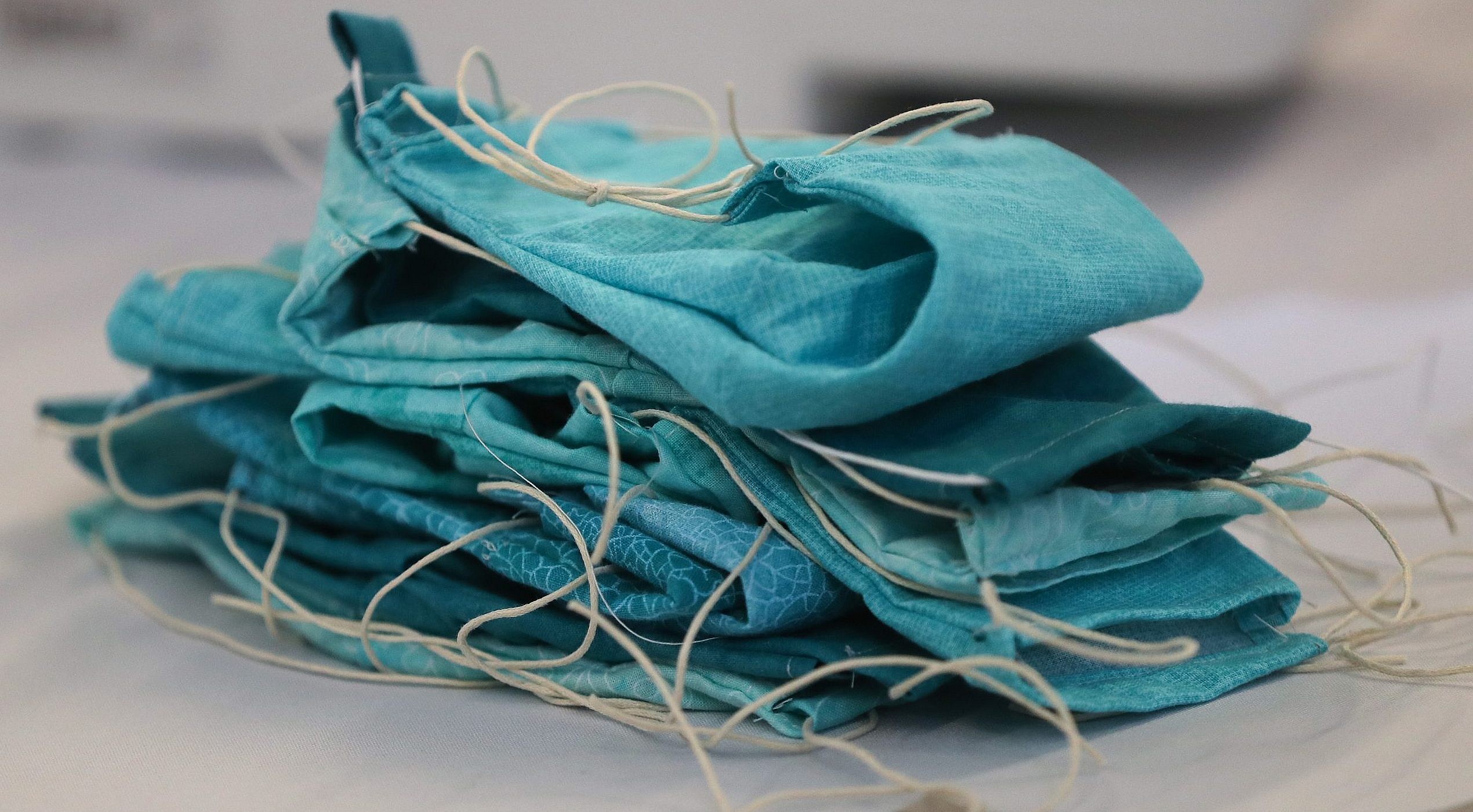
“When I’m out at the grocery store, I can use a surgical mass. The mask people make at home — you can use those masks, too. I don’t touch my face. I try not to touch anything, [even] my phone. When I get home, everything’s disinfected before I bring it in. Don’t move [the mask] around when you get back in the house. Fold it up and wash it with your regular stuff.”
MYTH #3 – If stylist, barber, nail tech or esthetician says they’re not sick — and you don’t feel sick — appointments are OK
There has been growing research showing that 1 in 4 people who have the virus are asymptomatic — meaning you show no symptoms, or few symptoms, although you are a carrier of the virus. This means that unless you’re tested, you don’t know for sure if you have the disease or not, and the same is true for your glam squad.
So err on the side of caution and cancel those appointments. Dr. Johnson says it’s the responsible thing to do. (If you’re able to, you can still pay these individuals to help them sustain their businesses during this time.)
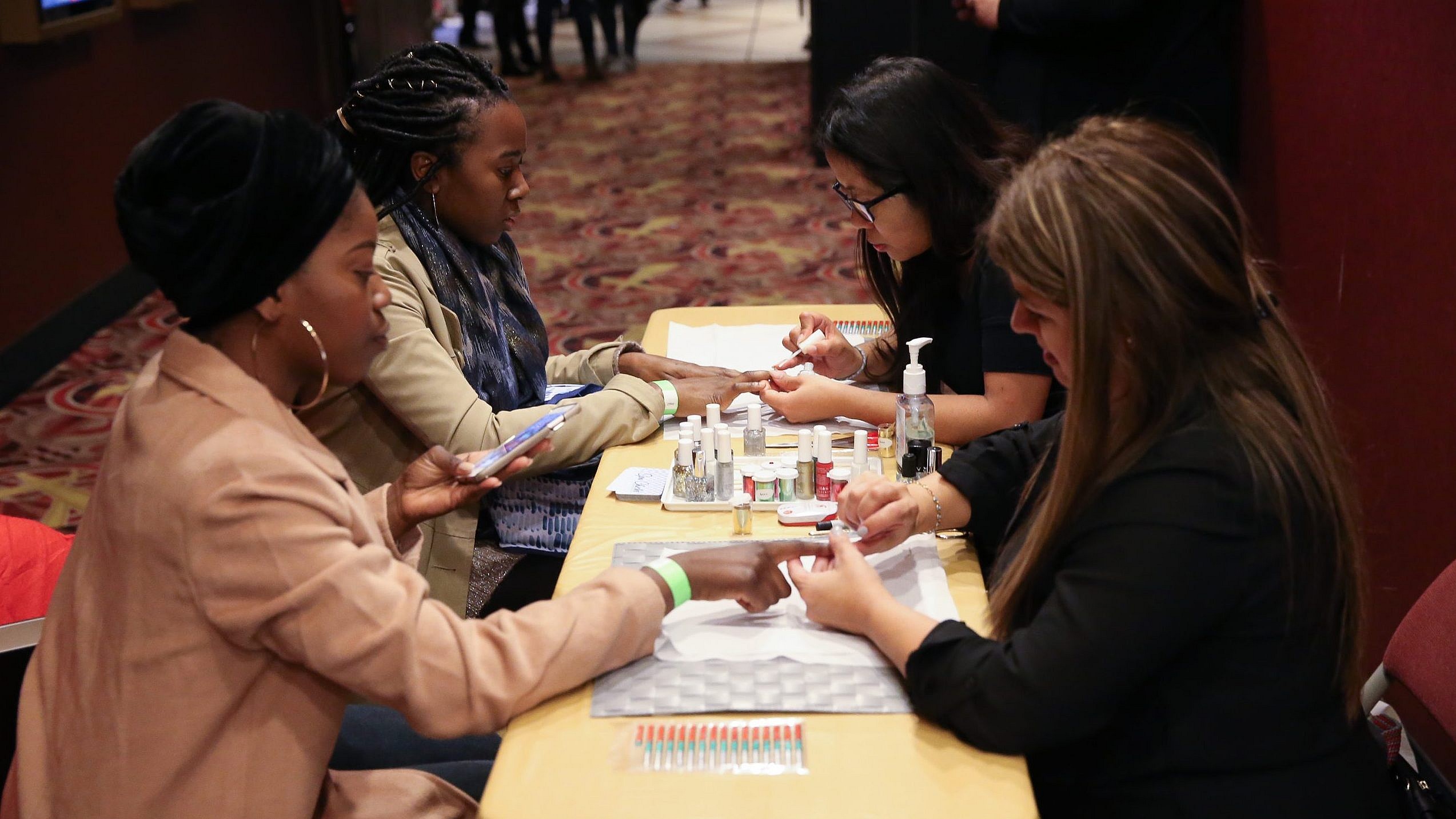
“If I went and got my hair done, even if I’m the only person in that salon and they’re cleaning it, I’m breathing on that person. I don’t have a mask on. Even if that person is wearing a mask, I’m breathing all over her stuff or his stuff as I’m getting my hair done,” Johnson says.
“So that part worries me a lot that I could get someone sick or even if that person is young and healthy and doesn’t get sick, they go home to their parents [and put them at risk]. I don’t know if I’d be OK if I knew that I got someone sick that got someone else sick and now they’re not here anymore.”
MYTH #4 – It’s best not to talk to your children about the virus
There are different ways to determine how to best communicate with your children about the coronavirus disease. What’s important is that you do communicate with them. Unless they’re an infant, there are very few ways to hide what’s happening in our world today, even from a child.
Dr. Karriem L. Salaam, a board certified adult and child & adolescent psychiatrist and a clinical assistant professor of psychiatry at Drexel University College of Medicine in Philadelphia, suggests determining what your child’s baseline is and then asking them questions.
“We live in a world where folks have, in their pocket, access to the amount of information available in the library of Congress, if not more,” Dr. Salaam says. “Everyone has a smartphone, so your kids know something [is going on]. Ask them open-ended questions. ‘What do you know about the Coronavirus? What do you know about COVID-19?’”
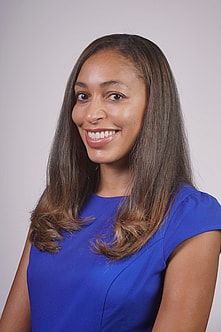 For Dr. Johnson, a single mother raising her teenage son, talking to her child about the coronavirus is one of the things that brought her to tears as she relived the moment in her video. As a single mom and a healthcare professional, she had to determine where her son would go if she were to contract the disease and not be able to go home.
For Dr. Johnson, a single mother raising her teenage son, talking to her child about the coronavirus is one of the things that brought her to tears as she relived the moment in her video. As a single mom and a healthcare professional, she had to determine where her son would go if she were to contract the disease and not be able to go home.
Dr. Johnson said she had a conversation with her son about where he’d want to go if she were quarantined at the hospital, and — after explaining to him that he wouldn’t be able to go to the hospital with her — the two of them figured it out together and came up with a plan. She also showed him where all of her important papers were — power of attorney, her will — just so he is aware and protected.
Every family, and every conversation, is going to be different. But Dr. Salaam says it’s important to “make sure the information you’re passing along to your children is accurate. So look to sources such as the Center for Disease Control and Prevention, the World Health Organization and the Substance Abuse, Mental Health and Services Administration.”
He also warns against procrastinating on having these conversations with your children.
“Let’s not allow perfect to get in the way of the good,” he says. “There are many people who delay and say, ‘I don’t know how to face this conversation with my child.’ Set the expectation low. You’re going to make mistakes. It’s not going to be perfect; but it’s better to arm them with information than to leave them without.”
MYTH #5 – COVID-19 is like the flu
“Some people were saying it’s like the flu and, you know, most people will be fine with the flu,” says Dr. Johnson. “But healthcare workers aren’t dying from the flu like they have died from COVID-19,” she says bluntly
Although some of the early symptoms may be similar — stuffy nose, feeling achy and a cough — and both diseases are transmitted by contact and droplets, COVID-19 is far more severe (and far more deadly) than the flu.
“Globally, about 3.4% of reported COVID-19 cases have died. By comparison, seasonal flu generally kills far fewer than 1% of those infected,” according to the World Health Organization.
Don’t assume what you have is the flu and you’ll just get over it. The CDC says, if you’re showing symptoms such as “trouble breathing, persistent pain or pressure in the chest, new confusion, inability to arouse or bluish lips or face,” seek medical attention.
Information will continue to swirl about this COVID-19 pandemic as new data, tests and, unfortunately, deaths continue to rise and the world tries desperately to adjust each day. Some of that information will be sound, some will be theory or, at worst, dangerous untruths.
Use your best judgment — and seek trusted medical resources — to stay informed, stay safe and healthy. And, whether it’s in your community or within your own family, as Dr. Johnson says, use your voice to help others in whatever way you can.
Elayne Fluker is a speaker, author and coach, who helps women get over “I got it” syndrome and embrace support as their superpower. She is host of the Support is Sexy podcast for women entrepreneurs, and her upcoming book teaching ambitious women how to ask for support will be released by HarperCollins Leadership in 2021.

